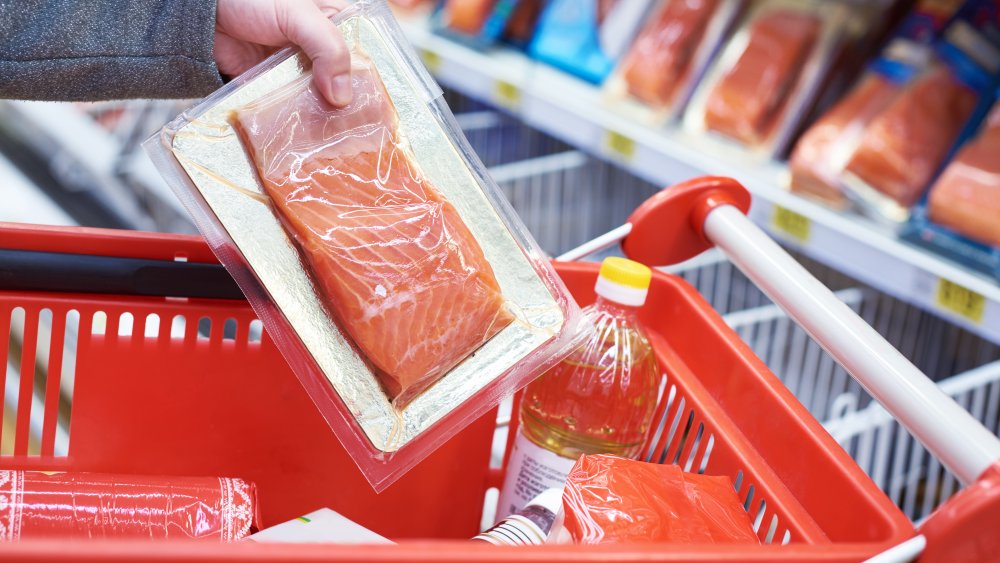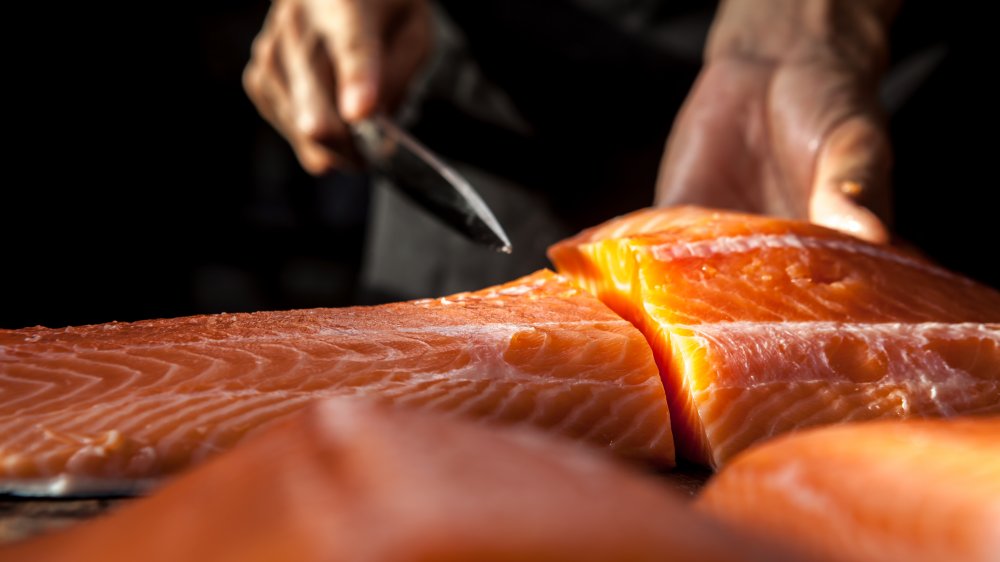Cold Salmon May Harbor COVID-19 For Over A Week
Might that salmon fillet you're getting ready to eat be a bad choice if you're concerned about getting coronavirus? A recent study has found that traces of COVID-19 virus can linger on this fish for as long as a week. Researchers in China concluded that SARS-CoV-2, the virus that causes COVID-19, collected from salmon samples could survive for eight days at 39 degrees Fahrenheit — which is approximately the temperature at which salmon are transported from the food supplier to a supermarket near you.
Despite this discovery, the Centers for Disease Control and Prevention has stated that there is no risk of coronavirus infection from food handling itself (via Bloomberg). Instead, coronavirus is thought to spread through respiratory droplets in the air from person to person. What about if you were to touch raw salmon that harbored the virus? According to the CDC website, you'll be protected if you wash your hands with soap and warm water for at least 20 seconds after shopping, handling food, and before cooking and eating any food.
Proper food preparation is important to prevent disease transmission, experts say
Cooking salmon — or any other raw food — to the proper temperature is essential to avoid transmitting any illness, according to disease prevention specialists. "The good news with this particular virus is that it is not a foodborne virus," Ben Chapman, a professor at North Carolina State University who studies food safety, told North Carolina Health News. Even if a trace amount of the virus were to somehow survive on cooked food, your stomach would destroy it in the grueling process of digestion, Chapman added. "Most of the food that we eat, ends up getting right into our gut and ends up encountering a whole bunch of acid in our stomachs," he explained. "And this virus particularly doesn't really remain infectious once it hits the stomach."
Indeed, the International Commission on Microbiological Specifications for Foods recently concluded that there has been "no documented evidence that food is a significant source or vehicle for transmission of COVID" (per Eat This, Not That!).


